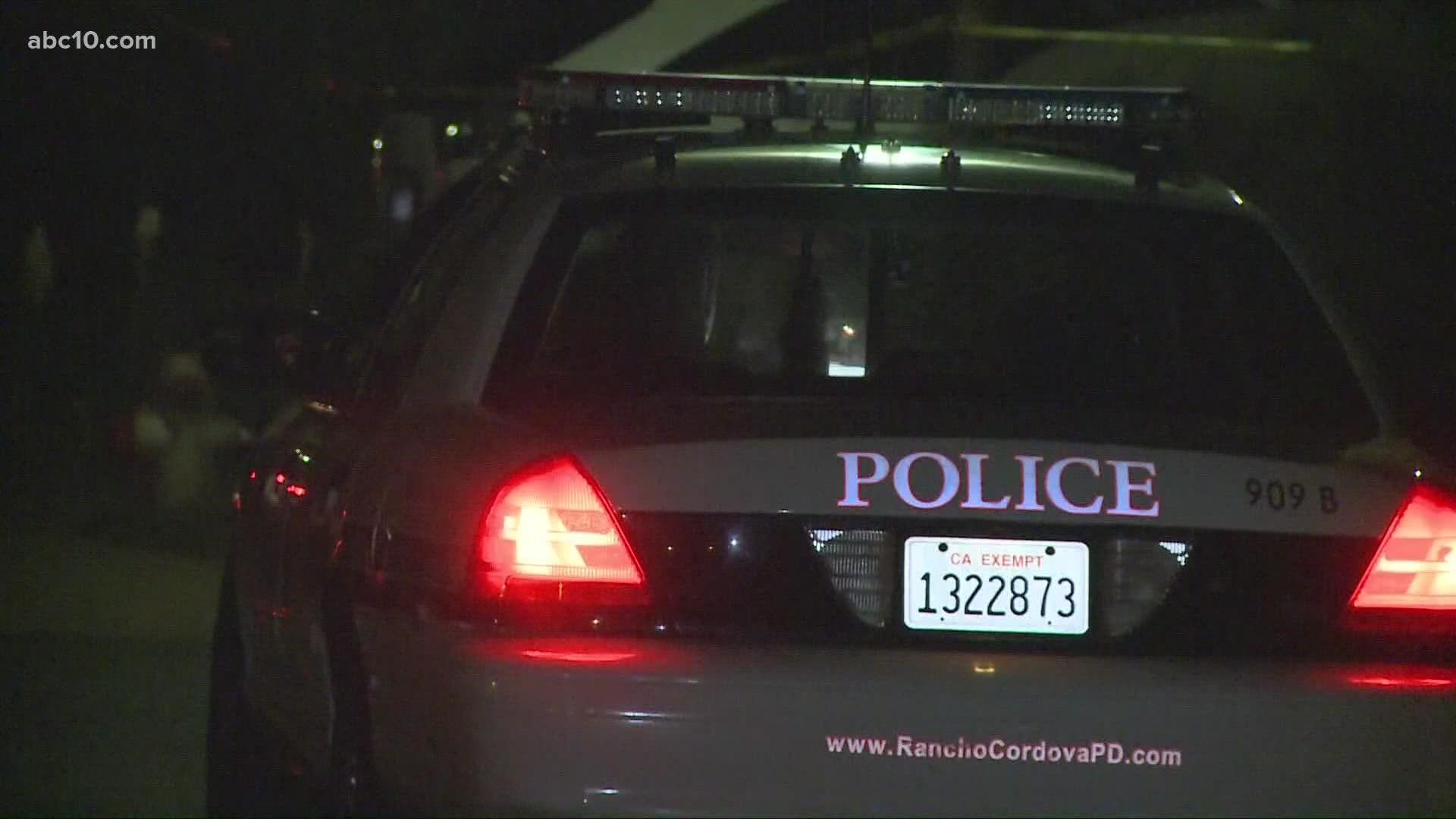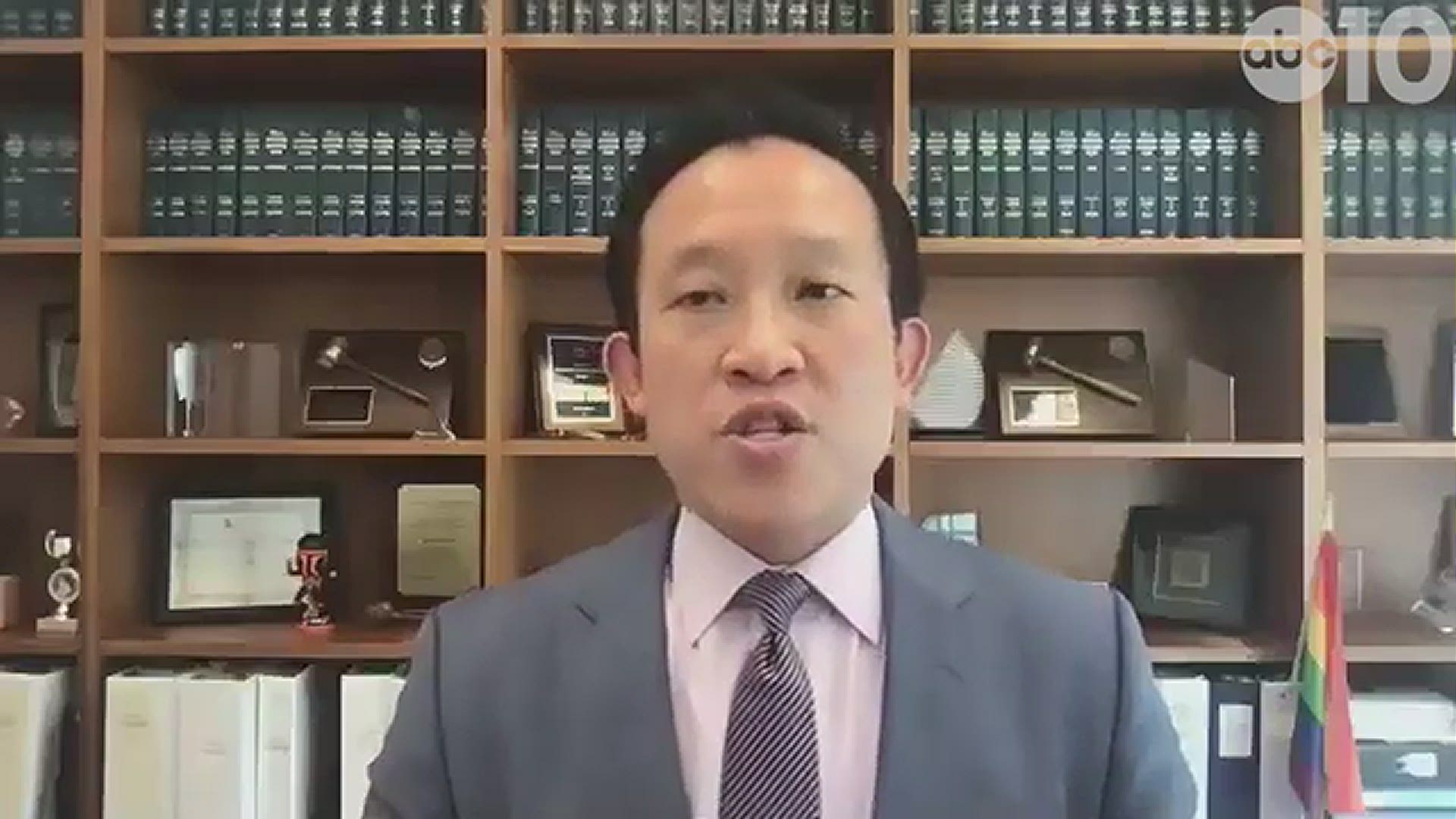CALIFORNIA, USA — As millions ring in a new year Jan. 1, several new state laws will go into effect, some changing the ways law enforcement agencies in the state operate.
New police officers will now need to be 21 years old and hold a bachelor’s degree. Those officers will also be required to report incidents of excessive force and intervene- or face disciplinary action.
Here is what you need to know about new laws regarding policing officially going to effect Jan. 1, 2022.
Summary: Raises the age limit to be a police officer in the state of California from 18 to 21 while requiring that new officers also have a bachelor's degree. A policing degree program will be established by the Chancellor of the California Community Colleges and implemented by the existing Commission on Peace Officer Standards and Training.
What’s new: Current laws require prospective police officers in California to complete a Peace Officer Standards and Training (POST) program. The program requires that students hold a high school diploma and be either 18 or older.
This bill, the Peace Officers Education and Age Conditions for Employment Act or PEACE Act, will require the Chancellor of the California Community Colleges to create modern policing criteria to be adopted by the Commission. The program will require students to be 21 or older at time of appointment. Financial aid resources for students in underserved and disadvantaged areas will also be required to be adopted under the PEACE Act.
Why it’s needed: Studies show that developing areas of the brain do not fully develop or mature until the age of 25 and that a four-year education in college significantly reduces the chance of an officer using excessive force. Author of the bill, Assemblymember Reggie Jones-Sawyer, D- Los Angeles, described the PEACE Act as a “data-driven bill.” He expects the new law to “ transform departments across the state.”
Summary: Requires law enforcement agencies to pass a military equipment use policy, during a public meeting, in order to receive and continue using surplus equipment from the U.S. Military. This policy must be reviewed annually and can be amended by the agency’s governing body. For state agencies wishing to use and acquire military surplus equipment, they must also create a policy, post it on their website, review it annually and a copy must be provided to the Governor’s Office. Agencies which already operate equipment from the military must now hold a public meeting through their governing body as well, to approve the continued use and acceptance of that equipment.
What’s new: Current laws allow the Department of General Services to supply law enforcement agencies in the state with surplus equipment from the military. Agencies are not required to advertise publicly for bids for the equipment or request delivery before payment. This law will, for the first time, force the establishment of policies by agencies who wish to use equipment offered by the military.
Why it’s needed: Former Assemblymember David Chiu, who authored AB-481 before resigning from the state assembly to become the City Attorney of San Francisco, argued that the acquisition of military equipment can be costly to law enforcement agencies and leads to distrust in the community.
In an interview with ABC10 regarding the bill, Chiu said, “The public has a right to know when and why police believe they need to use military caliber equipment especially when public dollars are at stake.” According to Chiu, law enforcement agencies in the state have purchased more military equipment than agencies of any other state during the last 30 years.
The public often has little information on the acquisition of military equipment, which can cost tens of millions of dollars, Chiu writes. Chiu authored the bill in light of incidents of military equipment being used on peaceful demonstrations across the state with no clear protocol.
Summary: Requires officers to immediately report potential incidents of excessive force and intervene if they witness excessive force that is “clearly beyond that which is necessary.” Law enforcement agencies will be required to revise policies to prevent retaliation against officers who report violations of law. Use of force policies must also require that officers who do not intercede when present in cases of excessive force, be disciplined up to and including in the same way the officer who used excessive force was disciplined.
What’s new: This law clarifies the timeline for officers who report cases of potential excessive force. The law specifies that the reporting of potential cases of excessive force by officers must be immediate. It also prohibits retaliation when officers report such cases. Also new, officers who witness but do not intercede in cases of excessive force can receive the same discipline as the officer who used excessive force.
Why it’s needed: AB-26 was authored by Assemblymember Chris Holden, D-Pasadena, following the murder of George Floyd by a Minnesota police officer who used force during an arrest. According to Holden, the law will increase public trust and accountability in law enforcement.
The Los Angeles County Public Defender’s Office found that the law would increase accountability by creating clear guidelines requiring officers to report incidents of excessive force and intercede. The office also notes that the law will, in some cases, prevent the re-hiring of officers who were found to have used excessive force or who were determined to have failed to intercede.
Summary: Forbids law enforcement agencies from authorizing methods of transport or techniques that lead to a “substantial risk” of positional asphyxia. Positional asphyxia is a position in which someone is prevented from breathing.
What’s new: State laws require that law enforcement agencies have a policy regarding use of force and the Commission on Peace Officer Standards and Training is required to create courses both regularly and periodically to train law enforcement officers in the area of using force. Existing laws prohibit law enforcement agencies from authorizing choke holds or carotid restraints. This law will add positional asphyxia to the list of techniques not allowed to be authorized by law enforcement officers in California.
Why it’s needed: AB-490 was written by Assembly member Mike Gipson, D-Gardena, and former Assembly member Rob Bonta, after the death of Angelo Quinto by police in Antioch. Quinto lost and never regained consciousness after an Antioch Police officer knelt on his neck, face-down, for almost five minutes as another officer restrained his legs. Quinto was suffering from a mental health episode. Assembly members Gipson and Bonta drew similarities between Quinto’s death and the killing of George Floyd by a Minnesota police officer who also knelt on Floyd’s neck for several minutes proving to be fatal. AB-490 expands on previous efforts, such as banning training on chokeholds, to limit excessive force by law enforcement.
READ MORE ABOUT CALIFORNIA'S NEW LAWS:
- Here is what's new in California workplace laws
- Here is what's new in California crime laws
- Here's what's new in California for vote by mail ballots
- Here's what's new in California for menstrual products in schools
- Here's how California is working to alleviate the housing crisis
- Here's what's new in California for prescribed burns




















